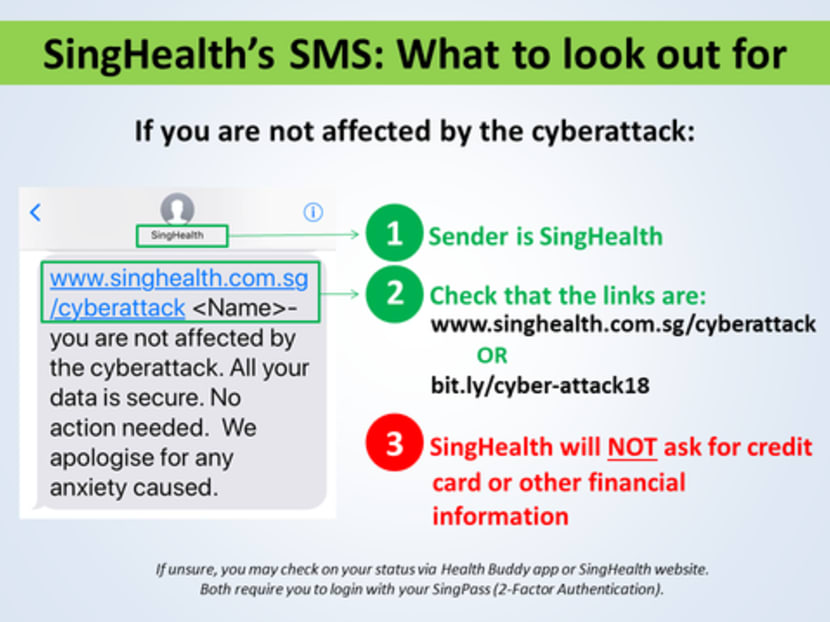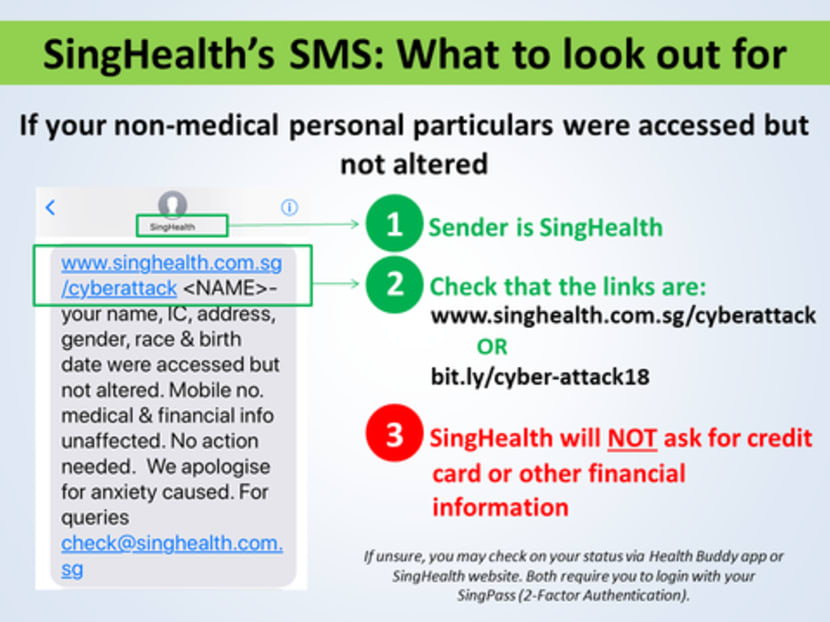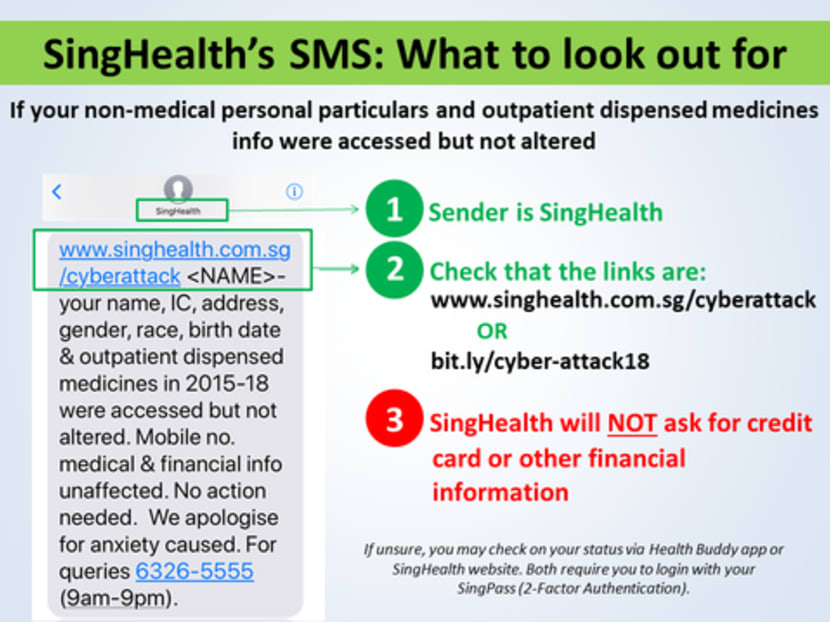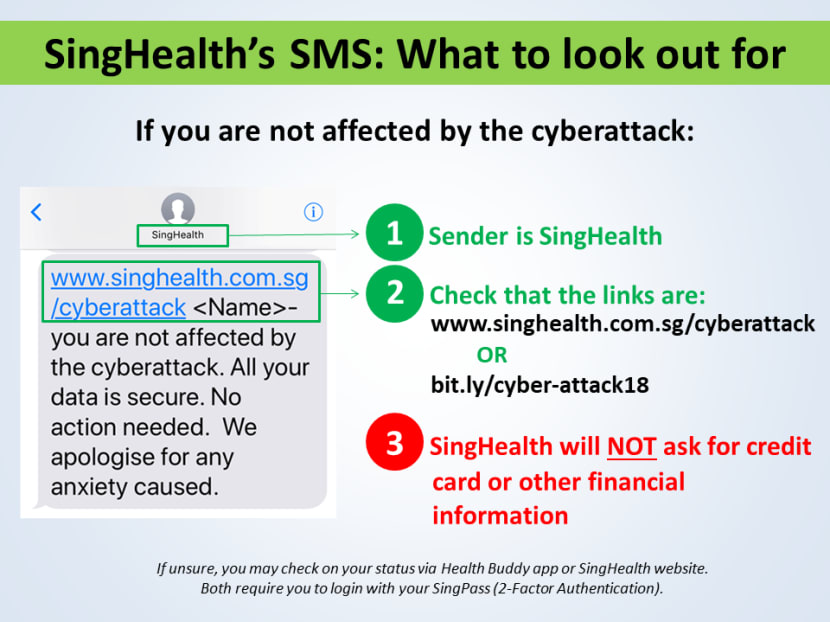Here’s how to verify if the SMS you received from SingHealth is genuine
SINGAPORE — SingHealth has issued a guide on Sunday (July 22) to help their patients differentiate the official SMSes from the fake SMSes, days after news first emerged that the healthcare group had suffered an unprecedented cyberattack.
SINGAPORE — SingHealth has issued a guide on Sunday (July 22) to help their patients differentiate the official SMSes from the fake SMSes, days after news first emerged that the healthcare group had suffered an unprecedented cyberattack.
In a Facebook post on Sunday evening, SingHealth showed three sample images of the official SMSes they are sending.



Apart from informing the recipient whether they were affected or unaffected by the cyberattack, the messages clearly identify SingHealth as the sender.
The group also warns in their messages that they will not ask for "credit card or other financial information", and advises recipients to check their status via the Health Buddy app or SingHealth's website if they still unsure.
On Friday, SingHealth warned of the emergence of fake SMSes tricking people into thinking that their phone number, financial information, and medical records had been compromised
As for members of the public who received hoax SMSes, SingHealth reiterated in a separate email to TODAY that no contact numbers or financial information, such as credit card details, were illegally accessed and copied in the cyberattack. Its spokesperson advises anyone who suspects he is a victim of a scam to report it to the police.
Meanwhile, some netizens have reported that they received what appears to be a legitimate SMS from SingHealth, but addressed to someone else.
In response, SingHealth group chief executive officer Ivy Ng said: "While we have made efforts to ensure this doesn't happen, we recognise that there are two possible scenarios why this may have happened — it could be a recycled mobile number that was previously registered to someone else, or it could be a wrong number mistakenly given to us."
Authorities revealed on Friday that hackers broke into SingHealth's IT systems last month to steal the data of 1.5 million patients and records of the outpatient medication given to Prime Minister Lee Hsien Loong.
The hackers — whom the authorities did not name and whose intentions were not spelled out — took data such as the name, NRIC number, address, gender, race, and date of birth of patients who visited SingHealth's specialist outpatient clinics and polyclinics from May 1 2015 to July 4 this year.
The records of the medicines given to 160,000 people — the Prime Minister among them — who had received outpatient treatment at SingHealth's outlets were also stolen.
Sign up for TODAY's WhatsApp service. Click here:












